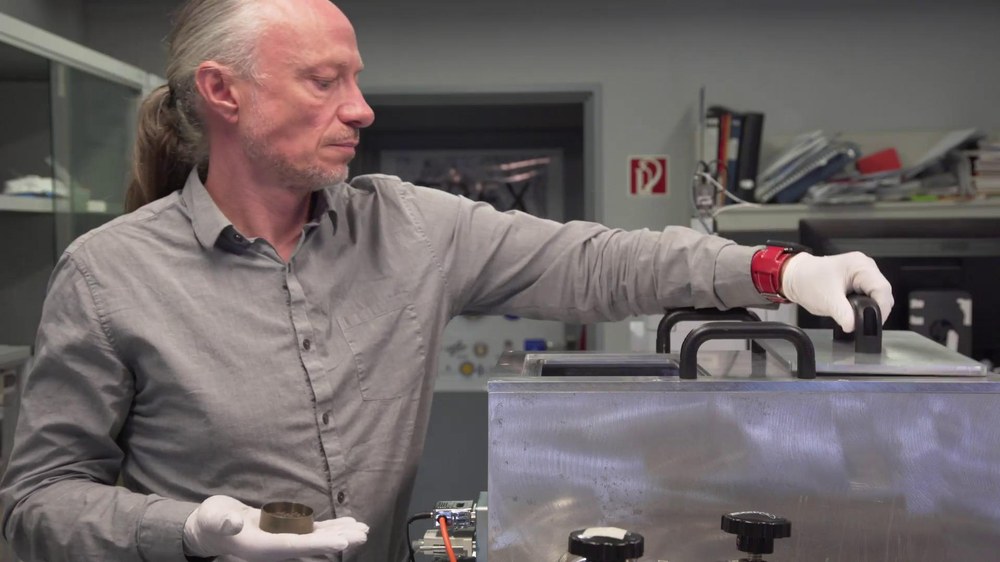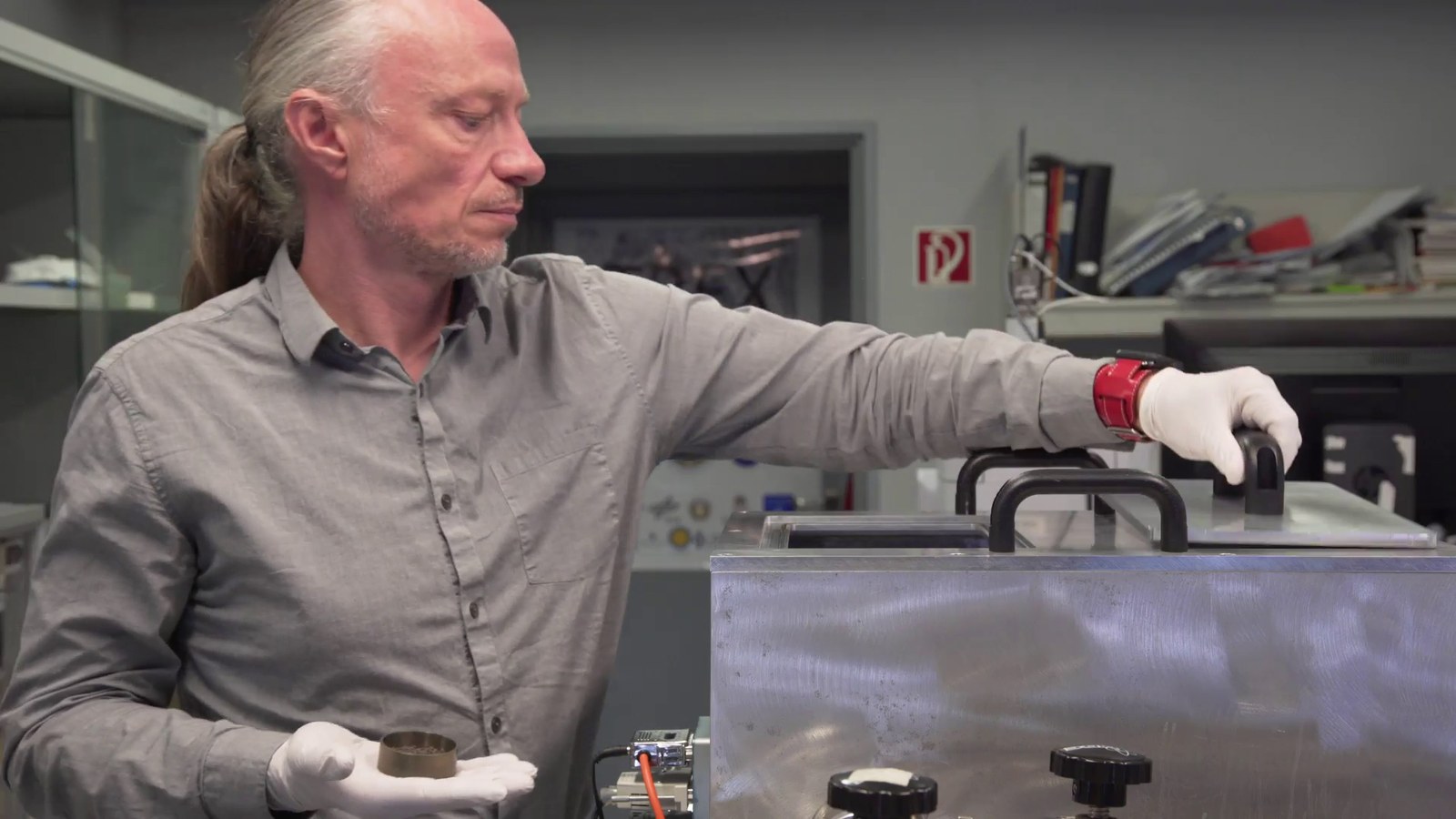Europlanet launches 10 million euro research infrastructure supporting planetary science

Your consent to the storage of data ('cookies') is required for the playback of this video on Quickchannel.com. You can view and change your current data storage settings at any time under privacy.
Europlanet/madebygravity.co


- Europlanet 2024 RI will provide open access to the world's largest group of facilities for planetary simulation and analysis, as well as a global network of small telescopes, data services and support for the scientific community.
- Since 2005, Europlanet has been providing Europe’s planetary science community with a platform to exchange ideas and personnel, share research tools, data and facilities, define key science goals for the future, and engage stakeholders, policy makers and European citizens with planetary science.
- DLR participates in the programme with a spectroscopy laboratory and a laboratory for simulating atmospheric conditions on various planetary bodies.
Solar System exploration benefits primarily from the ability of robotic spacecraft to visit planetary bodies, carrying cameras and experiments. In addition, much research is carried out in laboratories on Earth, and during field studies on volcanoes or in arid and cold polar regions. The German Aerospace Center (Deutsches Zentrum für Luft- und Raumfahrt; DLR) Institute of Planetary Research in Berlin has two laboratories for planetary research with globally unique capabilities. These are a spectroscopy laboratory for emissivity measurements of planetary simulants under extremely high temperatures, and a laboratory for simulating atmospheric conditions on a wide range of planetary bodies. Now, Europlanet, a European platform for planetary science, has launched 'Europlanet 2024 RI', a 10 million euro project. Europlanet 2024 RI, the 'Europlanet 2024 Research Infrastructure', will provide open access to the world’s largest collection of planetary simulation and analysis facilities, as well as a global network of small telescopes, data services, and science community support activities. DLR’s Institute of Planetary Research will obtain many benefits from Europlanet 2024 RI.
"DLR has been part of the predecessor networks for many years, hosting more than 100 scientists from around the world," explains Jörn Helbert, Head of the Planetary Laboratories Department. "This has already led to many high-level publications as well as long-lasting research collaborations." Europlanet 2024 RI aims to widen participation in planetary science and provides the infrastructure to address key scientific and technological challenges faced by the planetary research community. "I am excited that we are participating with our two laboratories here in Berlin. In the spectroscopy laboratory we simulate the temperature conditions on Venus and Mercury, providing support for ESA's BepiColombo mission, which is on its way to Mercury, as well as a number of proposed Venus missions."
Simulations from hot Mercury to the icy moons of Jupiter
In particular, DLR's ability to obtain spectra at the extreme surface temperatures on Venus – approximately 470 degrees Celsius – is globally unique and has already attracted scientific visitors from NASA. "In the new Europlanet 2024 RI, we will now add additional functionality," explains Helbert. "We will extend our capabilities to the icy worlds of the outer Solar System by providing 'icy' cryogenic spectroscopy under high vacuum." This will support missions such as ESA's JUICE, which will visit the Jovian system, NASA’s Europa Clipper, and the proposed NASA Io Volcano Observer (IVO). Jupiter's moon Io is the most volcanically active world in the Solar System. "In addition, for the first time we will offer access to our new Planetary Analogue Simulation Laboratory (PASLAB), which can simulate the atmospheric conditions on a wide range of planetary bodies. We are also participating in efforts to better store and disseminate data and develop new approaches to data analysis using ‘Machine Learning’," says Helbert.
The project is funded through the European Commission’s Horizon 2020 Framework Programme and will run for four years – from February 2020 until January 2024. The Europlanet 2024 RI consortium is led by the University of Kent, UK, and has 53 beneficiary institutions from 21 countries in Europe and around the world, with a further 44 affiliated partners.
Transnational access for planetary scientists to 24 laboratories in Europe
"This is a step-change in ambition for Europlanet, involving 60 percent more partners and expanding our collaborations in Africa and, for the first time, in Asia," said Nigel Mason, Coordinator of Europlanet 2024 RI and President of the Europlanet Society. "The project will draw on the resources of the Europlanet Society, launched in 2018, to disseminate activities and outcomes and develop a more diverse community of users." The new field sites in Africa and Asia that will be added will extend the range of planetary analogues significantly beyond what has been available to date. Europlanet 2024 RI will provide the planetary community with free 'transnational access' to 24 laboratories in Europe and five field sites worldwide to carry out research projects.
Europlanet and Europlanet 2024 RI
Since 2005, Europlanet has been providing Europe's planetary science community with a platform to exchange ideas and personnel, share research tools, data and facilities, define key science goals for the future, and engage stakeholders, policy makers and European citizens with planetary science. The Europlanet 2024 Research Infrastructure has received funding from the European Union's Horizon 2020 Research and Innovation Programme under grant agreement number 871149 to provide access to state-of-the-art research facilities and a mechanism to coordinate Europe's planetary science community. The project builds on a two million euro Framework 6 Coordination Action (EuroPlaNet), a six million euro Framework 7 Research Infrastructure (Europlanet RI) and a 10 million euro Horizon 2020 Research Infrastructure (Europlanet 2020 RI) funded by the European Commission.
